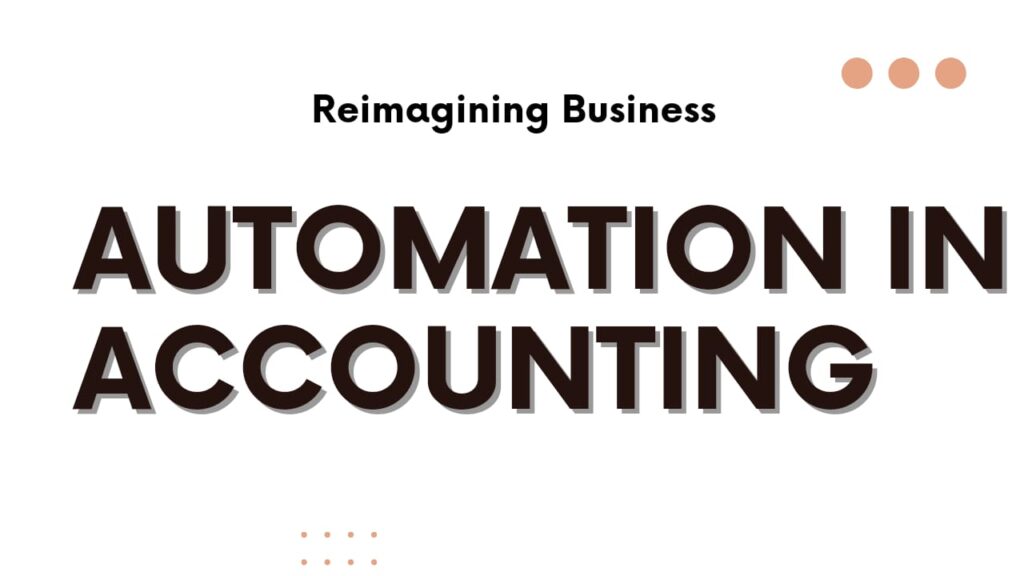
Automation in accounting refers to using technology and software to streamline and simplify various financial and bookkeeping tasks. It involves reducing manual efforts, minimizing errors, and improving the overall efficiency of accounting processes. Here are some key aspects of automation in accounting:
Data Entry: Automation tools can extract data from receipts, invoices, and other documents, reducing the need for manual data entry. Optical Character Recognition (OCR) technology is commonly used for this purpose.
Invoice Processing: Software can automate creating, sending, and tracking invoices. It can also match invoices with purchase orders and receipts, ensuring accuracy.
Expense Tracking: Automated systems can capture and categorize bank and credit card transaction expenses. This helps maintain accurate records without manual input.
Bank Reconciliation: Automation can reconcile bank statements with accounting records, flagging any discrepancies and ensuring accurate account balances.
Financial Reporting: Software can generate financial reports automatically based on real-time data, saving time during month-end and year-end reporting.
Payroll Processing: Payroll software can calculate employee salaries, deductions, and taxes and even facilitate direct deposits, reducing manual payroll calculations.
Tax Compliance: Automation can help calculate taxes owed, prepare tax forms, and ensure compliance with changing tax regulations.
Budgeting and Forecasting: Automated tools can assist in creating budgets and financial forecasts by using historical data and performance metrics.
Automated Reminders: Software can send reminders for upcoming payments, deadlines, and financial tasks, reducing the risk of missed obligations.
Audit Trail: Automation provides a digital trail of all financial transactions, making it easier to track changes and maintain transparency.
Security: Automated systems often have built-in features to protect sensitive financial information from unauthorized access.
Scalability: Automation can handle increased volumes of transactions as a business grows without the need for significant additional manual efforts.
Time Savings: Automation frees up accounting professionals to focus on more strategic activities by eliminating repetitive and time-consuming tasks.
Accuracy: Automation reduces the likelihood of human errors during manual data entry and calculations.
Integration: Many accounting software solutions integrate with other business tools, such as CRM systems, e-commerce platforms, and inventory management software.
Accessibility: Cloud-based accounting software allows access to financial data from anywhere, promoting collaboration and remote work.
Compliance: Automation can help ensure financial records and processes adhere to industry standards and regulatory requirements.
Cost Efficiency: While there is an initial investment in software and training, the long-term cost savings from increased efficiency can be substantial.
It’s important to note that while automation can significantly benefit accounting processes, human oversight and expertise remain crucial. Accountants play a key role in interpreting data, making strategic decisions, and ensuring the accuracy and integrity of financial information. The degree of automation you implement should align with your business’s needs and goals.



